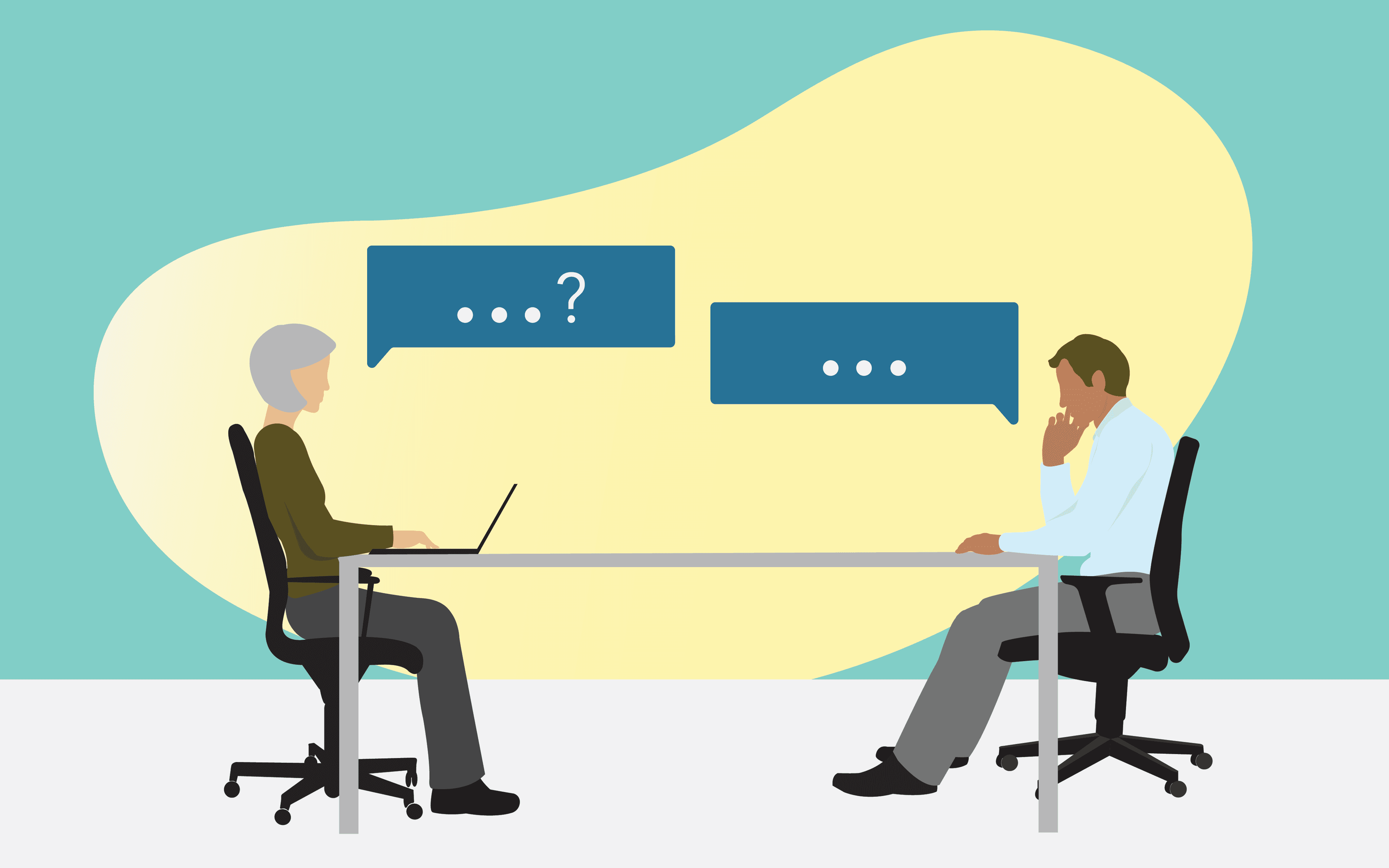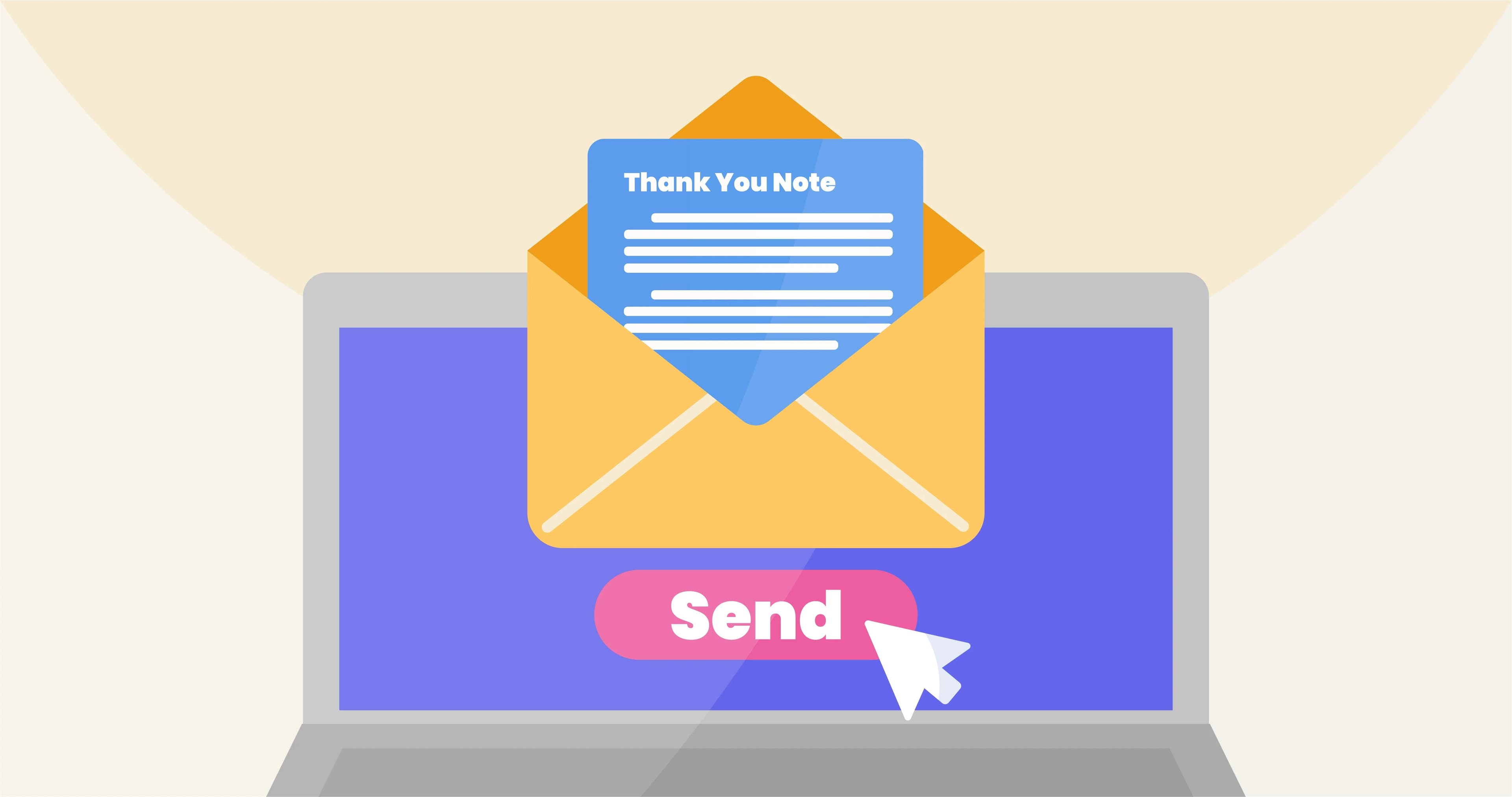Interviewing is one of the stages that anyone looking for a job must go through, and it plays a crucial part in the hiring process. If there are hundreds of other equally qualified or more qualified candidates competing in the same position, the job interviews can be extremely challenging and daunting. The applicant also wouldn't understand how to look eye-catching purely in their own way and represent themselves as a promising candidate in the eyes of the recruiter. What if you say something wrong or are "Unlucky" when encountering difficult interview questions? Feeling anxious, in this case, this feeling is extremely understandable. However, anxiety also reduces your chances. Then, what to prepare for an interview is the key to having a successful interview and helps candidates make a good impression on the employer. By preparing thoroughly, you can completely turn your weaknesses into strengths and master the most difficult situations. Therefore, to avoid wasting time and effort on the interviews and "go home empty-handed". Let's equip ourselves with the most necessary job interview skills on this journey.So, what exactly do you need to prepare for an interview to increase the chances of being chosen?Keep on reading, and you will get the answer you’re looking for!
In the interview process, the employer will find a way to determine whether the applicant really meets the job requirements as shown in their resume, as well as whether they are the most suitable person for the position opening. In some cases, the human resources department will also conduct a preliminary phone interview to verify the authenticity of the application before entering into further interview rounds.Below are the criteria that employers will consider during interviews.
Just read each sentence in detail and think about whether you are suitable for that job. Do you have enough skills and knowledge to handle this job? More specifically, do you really enjoy and have a passion for that job?The job description helps you have the most general overview of the job you are about to interview for and is also extremely useful to you as well. Some candidates are very subjective about this, just skimming it and thinking it's unnecessary.
When you answer the employer's interview questions during the interview process. I will promise you that they will ask you several questions related to this. Reading carefully and being prepared will help you get the best answer and convince your recruiter more easily.
You should research directions to the company's address at least a day before your appointment to find the location and should arrive 10-15 minutes before the scheduled interview time. In that way, you will have more time to straighten your clothes, regain your spirit, and prepare documents and papers if they are missing, as well as have the opportunity to observe the actual working environment here to express your personal style appropriately.
So, reviewing your own resume is a step you absolutely won't want to skip before going into the actual interview.
In addition, if you have prepared well but forget to calm down before the interview, anxiety can cause you to answer poorly and not fluently. The interview is an opportunity to help you shine and get the ticket that you want; don't be too worried or lose your temper. Be optimistic and confident in expressing your full potential.
In just about 30 minutes, you must present all your strengths. You must point out your strengths, your abilities, and what makes you stand out and different from other candidates.
In case you encounter a question that you don't have the answer to, you can tell the employer that you will learn more about this issue and gonna give them the answer back when you have the opportunity to work with them. This shows that you are not only eager to learn but also willing to go beyond.
For example: "I have used and experienced a software that is very suitable and idea for the job here, and I wonder if our company has tried and explored this tool before?”One important keynote every applicant should always bear in mind is that “don't ask questions that are too private and personal to the hiring manager”. Just know to avoid any questions related to the employer's family, age, gender, etc.

1. What Is a Job Interview?
The job interview is an important part of the hiring process. After reviewing all applications received, the hiring manager or recruiter will only contact candidates with suitable profiles to schedule interviews.In the interview process, the employer will find a way to determine whether the applicant really meets the job requirements as shown in their resume, as well as whether they are the most suitable person for the position opening. In some cases, the human resources department will also conduct a preliminary phone interview to verify the authenticity of the application before entering into further interview rounds.Below are the criteria that employers will consider during interviews.
- Is what you write in your resume honest and of good quality?
- Do your skills match the job requirements?
- Will you be able to fit into the corporate culture?
- Are you really interested in this position?
- What values can you bring to the table?
=> Key Takeaway: Just think about the interview as a normal conversation between two people, where each person is trying to learn and know more about the other. The interview process is a two-way street.
As a candidate, you are heading towards a goal: "a suitable job". Similarly, from the employer's perspective, it is also heading towards a destination: "hiring the right person".
2. Why Should You Be Well Prepared For A Job Interview?
It can be seen that preparing carefully for a job interview is an important step that can not be skipped if you want to increase your chances of success in getting your dream job.The first reason is that it helps to demonstrate insulation and readiness to overcome challenges. You will be flexible when asked about the firm, the role, and the industry, and all the answers will be as good as they are persuasive.The second reason is that preparation ignites your self-confidence. When you are familiar with the company and the role before the job, you have a clear picture of the abilities and proficiencies the organization is looking for. At the same time, carefully preparing for interview questions also helps you be more confident when facing difficult and unexpected situations.The third reason is that careful preparation also helps you make a positive impression before the employer. Understanding the working environment and the company's values will help you communicate and talk more naturally, attractively, and confidently. This absolutely increases your chances of being selected for their business.Lastly, the preparation also allows you to stay focused on your goal. The moment you know what you want exactly from this job, you will be able to communicate your passion and dedication to the employer.3. How To Prepare for a Successful Job Interview?

3.1. Before the Interview Process
3.1.1. Read the Job Description Carefully
During your preparation, you should use the employer's posted job description as a guide. A job description is a list of competencies, qualities, and backgrounds that employers are looking for in an ideal candidate.Just read each sentence in detail and think about whether you are suitable for that job. Do you have enough skills and knowledge to handle this job? More specifically, do you really enjoy and have a passion for that job?The job description helps you have the most general overview of the job you are about to interview for and is also extremely useful to you as well. Some candidates are very subjective about this, just skimming it and thinking it's unnecessary.
When you answer the employer's interview questions during the interview process. I will promise you that they will ask you several questions related to this. Reading carefully and being prepared will help you get the best answer and convince your recruiter more easily.
3.1.2. Learn About the Business You Are Applying To
Thoroughly learning about information related to the company you are about to interview for, as well as understanding the job position you are applying for, will help you enter the interview more confidently and less nervously. Factors that can be discovered include the history of formation and development, the products/services the company provides, the company's competitors in the same markets, and their public annual reports. In addition, you can also access the company's website, watch out for their posts on social networks, or even asking information from acquaintances who have worked there…. to have a more general view of that company's mission and vision for the future.Researching the company you are interviewing for will help you clearly understand the context of the interview questions, thereby taking the initiative to provide appropriate answers and questions for employers. You can confidently share any information you know about the company with the recruiter when being asked, and if you have the ability, feel free to contribute your opinions boldly to the company's development in the future.“Victory can be in your hands if you dedicate enough time to understand and analyze your main target.”The more you understand about the company, the more advantage you will have over your competitors. Furthermore, during the interview, focusing on investing your time to better understand the business is truly a huge plus in the eyes of the employer. They will take you seriously when applying for this position, as well as see your sincerity and your interest in their company.
3.1.3. Choose Appropriate Clothing for The Interview
There is a funny saying, that is “Light travels faster than sound”. So, it also means that the employer will see your appearance first before you speak. That somehow shows the importance of a candidate's appearance during a job interview.Appearance is the first factor that affects the impression of an employer. You will usually only have about 15 -30 minutes to make a good impression on the employer before becoming one of dozens or hundreds of other people on the candidate list.Therefore, the outfit you "appear" in front of the interviewer is also a way for you to show your professionalism. This is probably the factor that many people ignore the most; they think that employers “only need you to have much experience, skills and ability to fulfill the job”. However, dressing appropriately for the situation and neatly is also a way for you to show respect for the company and the position you are applying for while also creating sympathy with the person you are talking to.Nevertheless, the working environment and culture at each company are often different, so you cannot guess which clothing style is most suitable. You can try to find out about the company style to see if they prefer traditional things like finance and accounting,... or dynamic things like marketing, etc. so that you can easily make the appropriate choices on your own.Formal attire is probably the quickest and easiest way to score points, and it's not too difficult to prepare properly. All you need to do is to make sure that your clothes are elegant, your hair is neat, and you don't wear clothes that are too revealing or overly tight, which might cause a loss of goodwill.It's best to choose a White T-shirt, trousers, dark shirt,... as long as the outfit is polite and formal. Just make yourself feel comfortable and at ease with the right outfit, and always be proactive, as well as express yourself in the way you are.3.1.4. Practice Your Interview Answers In Advance
You should list down all the questions you might encounter during the interview and prepare short, concise, but meaningful answers. During the interview, stress and worries will make it impossible for you to think clearly and express your best answer. So, the way for you to answer it smoothly is to practice your answer in advance, at home, or in front of a mirror. Obviously, practice answering directly will help you feel less confused when entering the actual interview round. You can practice in advance with someone you know (like friends, family, or relatives) and ask them to act as recruiters to evaluate your skills. This makes everything more objective, helping you have a better state of mind before officially "on air."Or better yet, you can visit your "College's Career Center" to ask for help with interview simulation; the instructors here might edit your answers and make your appearance as professional as possible.“ Here are the top 7 frequently asked questions during job interviews that you will face no matter what"This is the time when you need to sit back and practice answering everything you think will happen in the job interview and make sure that you can beat it out of the park, no sweat! You can also refer to the "job interview experiences of other candidates" to get better inspiration. Then, imagine what happens and your body's reaction when you are in a passive situation; at that moment, just take a deep breath and really focus on the question. When you are able to respond quickly to questions, you are showing yourself as a person capable of handling and turning around unexpected situations quickly.
3.1.5. Do Prepare Questions for The Interviewer
Most of the time, at the end of the interview, the recruiter will ask if you have any questions for them. You will lose points with the hiring manager if you say you don't have any. Therefore, you should think in advance about the questions you want to ask the employer or anything you have just come up with after hearing about the employers' sharing during the conversation from the beginning until now. You certainly don't know everything about the company, so it's natural to prepare the questions in advance.Write down a few questions you think are necessary on a piece of paper and bring it with you to the interview. These questions should also be chosen intelligently to be able to exploit more important information related to the business and the position you are applying for, such as:- Which departments do you often interact with?
- What is the company’s work environment and culture?
- What are the position’s benefits and incentives?
- What training courses and growth opportunities come with the position?
- What is the work process and scope of work?
3.1.6. Arrive at the Interview Earlier Than the Scheduled Time
Punctuality is one of the essential job interview skills. Because being late will show that you are unprepared and irresponsible to the prospective employer. Conversely, arriving early can help you avoid unforeseen issues like traffic jams, traffic collisions, car breakdowns... It is also regarded as one of the most efficient ways to prepare for any unwilling circumstances and avoid making others wait for you.You should research directions to the company's address at least a day before your appointment to find the location and should arrive 10-15 minutes before the scheduled interview time. In that way, you will have more time to straighten your clothes, regain your spirit, and prepare documents and papers if they are missing, as well as have the opportunity to observe the actual working environment here to express your personal style appropriately.
3.1.7. Be Ready for Situational Questions
Many employers want to test candidates' ability to handle situations and critical thinking skills with unexpected questions that go beyond basic information such as introductions and work experience.Don't think that the interview is only about skills and what you can do to meet the requirements related to the position. The employer will most likely directly test your abilities in a certain situation, or several ethically related situations to better evaluate your personality. Therefore, be calm and clear-headed to give the best answers possible on your own.To prepare for this contingency question, you can refer to YouTube videos and blog posts about the job itself. Or simply ask yourself, “If I were the employer, what would I ask?” This can help you prepare for as many situations as possible.One of the most commonly asked questions in interviews is: “Why did you stop working at your old company?”. In this case, you absolutely should not have bad mounting of the company or your former boss, regardless of whether it was your fault or not. Instead, you can answer with objective and sympathetic reasons like: “I want to try in a more dynamic environment and gain more experience”. Companies want to hire "problem solvers" to go beyond the situations they are given to see the candidate's reflexes as well as their body language right at that moment to have a precise evaluation.3.1.8. Check Back on Your Resume and Understand Everything You've Written in It
Any work experience or skills you have listed on your resume are reasonable things to talk about during the interview. Your resume is exactly what interviewers rely on to get to know you better. They may pick things up from your resume and ask you to explain them more specifically. Even though you may have a previous job listed from many years ago, the interviewer may ask you to explain what you did in that job and what you learned during that time.So, reviewing your own resume is a step you absolutely won't want to skip before going into the actual interview.
3.2. During the Interview Process

3.2.1. Phone on Vibrate or Off
This is a basic mistake, but many candidates encounter it. Maybe because it is too simple, it is overlooked while preparing for the interview. You can turn off the bell or switch it to vibrate mode during the interview and turn it back on later. Avoid interrupting the interview due to your influence; this is truly an impolite action when the employer is seriously spending time with you.3.2.2. Approach The Interview with Confidence
Confidence is a factor that is important not only in life but also in interviews. It determines the employer's first view of you and also makes you score points with employers and their interest in you as well. Before going into the interview, remember to take a deep breath to create a confident demeanor as much as possible. Confidently answering a job interview not only contributes to creating a more natural and professional atmosphere but also shows your credibility to the employer.Don't enter the interview room with a scared face, a lack of determination in your eyes… You can't avoid the employer's eyes forever; they will immediately see your weakness, which is a lack of confidence. That shows that you are not really ready and not well prepared.In addition, if you have prepared well but forget to calm down before the interview, anxiety can cause you to answer poorly and not fluently. The interview is an opportunity to help you shine and get the ticket that you want; don't be too worried or lose your temper. Be optimistic and confident in expressing your full potential.
In just about 30 minutes, you must present all your strengths. You must point out your strengths, your abilities, and what makes you stand out and different from other candidates.
3.2.3. Answer Briefly and To The Point
Interviews, in general, do not have much time. That is why you need to know how to focus on the main points that interest the recruiter the most. Always pay attention to the interview time to get the most appropriate answers on your own.If you have a length of time, you can provide more information, but if you have less time, tell them what is most essential and central. Speak to the point, not absent-mindedly or long-winded, but focus on the issue that needs to be discussed.When you are faced with difficult questions, and you don't know how to answer them yet, you can stop for a few seconds to think and shape your point of view so that when you are ready to answer, you are calm enough to convey what you want to deliver to the interviewer.In case you encounter a question that you don't have the answer to, you can tell the employer that you will learn more about this issue and gonna give them the answer back when you have the opportunity to work with them. This shows that you are not only eager to learn but also willing to go beyond.
=> Key Takeaway: Use the STAR method to answer the interview questions. The STAR method refers to "Situation, Task, Action and Result". It corresponds to the way you answer a difficult question in an Interview.For example, When a recruiter asks you: "What challenges did you encounter in your previous job position?". There are quite a few candidates who are confused when entering this kind of question.To simplify it, you just need to apply the STAR method to handle this situation: First, you state the situation that you think is difficult at your old company (S). Then, you list the tasks (T) and the solutions you implement to handle the above tasks (A). Finally, what results did your actions bring to the assigned task (R).
3.2.4. Active Listen and Avoid Interrupting the Recruiter
When the employer is discussing, absolutely do not interrupt. You must wait for the employer to finish speaking before expressing your opinion; this will show a polite, attentive, and listening attitude, as well as display your interest in what the employer is saying. Interrupting can easily cause the hiring manager to judge you as being hasty and rash in your thinking and behavior. Listening skills are also a good qualities something that employers want to see in a potential candidate.3.2.5. Be Honest and Be Yourself
The main purpose of the interview is usually for the candidate to fully demonstrate his or her talents so that the recruiters can easily select a bright candidate suitable for that job position.That's why candidates shouldn't try to turn themselves into someone else; be yourself when you know where your strengths are and what level of knowledge you have, and be honest with those things; you will better create a good impression with the employer than ever. Lying is not difficult, and it is easier to see who is lying. You should not answer the interview according to stereotypical preparation and not tell the truth about yourself. Ultimately, being yourself is the most important of the many job interview skills.No matter how well you understand the ways to "please" employers, what they care about and focus on most is not your external appearance but your abilities and ethics.Moreover, you should never lie about anything on your resume or during your job interview. With the development of the Internet and social relationships, double-checking and verifying the information you provide is easier than ever before.With any question you receive during the interview process, try to make sure that your answer is honest and sincere. Honesty is a very important quality that employers evaluate in every single candidate. Be yourself and answer honestly about what you have and what you know. Sometimes, that doesn't make you stand out too much, but it's better than a dishonest answer.Because experienced recruiters will easily recognize whether a candidate's answers are not truthful or not. And if that really happens, it will cause you to get a huge red flag and not be appreciated in the eyes of employers.If you don't know about something or a field that the employer asks about, just honestly answer that you don't have experience in that, and you will be willing to learn and improve. Sometimes, skills or knowledge are one of the necessary factors to apply for a job position, but if you show yourself as someone who is eager to learn and willing to overcome difficulties, the chance of you being accepted and considered by the employer is still very high. Remember that the recruiters are looking for the most suitable person for a position in the company, not the most talented one.3.2.6. Pay Attention To Your Body Language
Did you know that more than 70% of the “messages” you send to your communication partners are through body language? Body language is an important communication skill that determines your success or failure in the interview, no less than verbal language. All HR interviewers are being trained to “read” your body language to see how you are feeling.Perhaps you also know that the body language we express intentionally or unintentionally can convey more emotions and information than words. Therefore, during the interview, employers often pay close attention to every gesture and action, even the smallest, of the candidate to better understand their personality and character.Expressions like looking up or down show that you're not paying attention. Similarly, constantly rubbing your hands when answering questions will show that you're trying to hide something. Or even constantly looking at the clock shows that you do not value the time and are not fully devoted to the interview, even worse, considering it a boring job. Sitting posture is not straight; shoulders are sagging, wiggling in the chair while speaking, hands often do many unnecessary movements, eyes looking down... prove that you are very less confident in your words and shows your awkwardness and clumsiness, and that definitely won't make a good impression; the interviewer may even misunderstand what you are trying to convey. Your body conveys more emotional information than you think. Therefore, pay attention to seemingly small gestures during the interview. So, take advantage of this point by showing confident gestures such as: For instance, you can make a good impression on the employer by sitting up straight and appearing friendly and focused, especially maintaining eye contact throughout the conversation, and sometimes smiling to create sympathy and create comfort and confidence. Employers will see and feel that energy. Just imagine a scenario in which a candidate doesn't dare to make eye contact with the recruiter - how awkward and uncomfortable that situation is. That's why you have to practice using your body language delicately and carefully, paying attention to every word and smallest gesture of yourself during an interview.Employers can clearly see what kind of person you are through all your actions. Body language can also be a double-edged sword as it can not only help you express your enthusiasm during your conversation but also reveal your psychological state at that time. You can improve it as well as control yourself better by regularly looking in the mirror, pretending to be in the interview setting, and having someone ask you questions, and you answer them. From there, adjust your body language to match your responses as best as possible.3.2.7. Know How to Ask Questions to Avoid Passivity
During the job interview, do not become passive just because you only answer questions when they are being asked by the recruiter. One of the very important soft skills that very few job applicants use in a job interview is knowing how to ask counter questions. Asking questions is considered a simple way to make an impression on the hiring manager. Through this, you can also demonstrate your critical thinking mindset. Therefore, if you have any questions or hesitations on the part of the interviewer, this is also an opportunity for you to clarify the job requirements and provide more information about yourself to the employer.Occasionally, posing questions to the employer can make the interview feel more conversational and less like a high-pressure test, as it allows for an exchange of information back and forth. In addition, the employer will also be pleased to know that your level of interest in the job is in demand.However, asking effective questions is not easy. Questions about the company's characteristics, vision, business methods, etc., will only make the employer feel that you have learned absolutely nothing about them. Instead, ask intelligent questions that both demonstrate your abilities while also indicating your understanding and desire to bring your value to the company.For example: "I have used and experienced a software that is very suitable and idea for the job here, and I wonder if our company has tried and explored this tool before?”One important keynote every applicant should always bear in mind is that “don't ask questions that are too private and personal to the hiring manager”. Just know to avoid any questions related to the employer's family, age, gender, etc.
3.3. After the Interview Process

3.3.1. Ask the Recruiter About the Next Steps
After the interview ends, you will have the right to be asked about the next stage in the recruitment process, such as: If successful, what recruitment rounds will you go through next? If you are not accepted, will an email notification be sent to you? Don't forget to say thank you to them, and show your sincere anticipation for the interview results. However, do not forget that before asking the above questions, you should thank them for taking the time to interview you today and show your gratitude for that.3.3.2. Send a Personalized Thank-You Letter or Email to the Recruiter
Greetings at the beginning and thanks at the end of the interview; although only small actions, they help you leave a very good impression on the employer. You can both send your thanks directly when completing the interview and also send a letter via their email.Some applicants might believe that everything will be fine once the interview is over. However, to show a professional attitude, you should send a thank you letter or email after the interview. In particular, the best time is within 1 day after the interview ends. This helps demonstrate your professionalism as well as your appreciation for this working opportunity. In the letter, remember to mention your gratitude for the employer taking the time to listen and exchange information between both parties. Doing this will positively score you against other candidates."A related article about this topic is available here: How to Make a Lasting Impression After a Job Interview."
